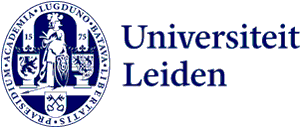
Prize for production of sustainable rose smell
Sustainable rose smell that can be produced on a large scale. Tobias Fecker made this into a possibility during his master's thesis, which was a collaboration between the IBL and the TU Delft. He wins the fourth edition of the Krijn Rietveld Memorial Innovation Award.
The award win feels like an appreciation for the amount of effort Fecker put in. ‘Because of a mix-up with the emails I actually got the mail at 1 am at night and, having not expected this at all, I couldn’t sleep afterwards,’ he says. ‘It is also great to see that collaboration between universities gets rewarded, as it can produce amazing results.’
About the Krijn Rietveld award
In memory of Krijn Rietveld (1956-2018), the Leiden University Fund and dsm-firmenich (previously Royal DSM) have established the Krijn Rietveld Memorial Innovation Award. Launched in 2020, this annual award is organised to reward excellence in innovative research, while contributing to a more sustainable world.
This prestigious award accompanies a cash prize of €10,000 and will be handed out annually for the best thesis (MSc), dissertation (PhD) or post-doc research at Leiden University in the field of biosciences in combination with data sciences.
Microorganisms for sustainable production
Fecker focused on yeast, a microorganism that can be used for many biotechnological products, such as bioethanol. ‘The main point of this is that production using microorganisms is more sustainable than chemical production. We need less harmful chemicals, and also the byproducts are less harmful for the environment,’ he explains.
In his research, Fecker was looking for an alternative to produce rose extract. Traditionally, to produce rose smell, the molecule 2-Phenylethanol needs to be extracted from tons of rose petals. One petal makes only a tiny volume, and yearly up to 5000 tons of extract is needed. This consumes lots of resources, is expensive and uses up much land. Rose extract can be chemically produced, but very harmful byproducts are formed.

Yeast with rose aroma
Fecker: ‘Because of these factors, we were looking at a strain that could produce the good-smelling compound, which had been designed by my supervisor. But the compound itself proved to be toxic to the yeast, so we could only reach a certain low concentration of the compound until the organism couldn’t produce it any longer.’
Upscaling and making it profitable
Fecker’s challenge was then to design a process in which the compound was immediately taken away from the yeast, so it would not be bothered by it. ‘This way, we could produce much more of the compound. In fact, it was the highest concentration anyone has achieved so far. I also designed a large-scale production facility, in which the compound could be produced. And I calculated that with our process, we indeed could potentially outcompete the other processes to make it profitable to produce biologically.’
The young researcher dreams of making an impact in the production of chemicals. ‘It is now very much petrol-based. It would be great to transform it into a bio-based production. Having won the award, I really feel like I am going the right path with this and it gives me a lot of motivation to pursue this dream further.’
Jury member Pieter Schipper on Feckers’ project: ‘His research contained elements of biology, chemical engineering, data science, econometry and industrial ecology. It is, in the opinion of the jury, a great example of the breadth of knowledge necessary to be successful in an innovative business, and seeing all these aspects integrated into a coherent master project is incredibly impressive.’
